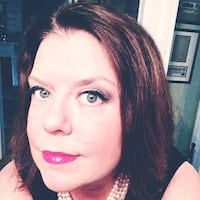The Atlanta in Elizabeth Musser's latest novel, "Searching for Eternity," is a place where change is in the air. White police officers try to look the other way when white boys from prominent families beat up a black boy. A black veteran has returned from fighting the Germans during World War II and is treated not as a hero, but as a second-class citizen who knows better than to seem too familiar with white neighbors.
But as the schools integrate, black and white residents break bread together at some tables and, in some cases, children lead adults toward progress. Musser's young protagonist, forced to move from his native France to Atlanta when his mother decides to come home, offers searing social commentary by way of childlike curiosity (Why is it a sin to drink wine, he wonders one day before church, but not to use racial slurs?).
Musser, who grew up in a house on Nancy Creek Drive, graduated from the Westminster Schools before studying at Vanderbilt. She first visited France as a college student and returned on a mission trip. She and her husband, Paul, moved to France in 1989 to help start a church in Montpelier, and they have since called their adopted country home.
Musser is back for a visit and will sign books during the lunch rush Wednesday at The Varsity, which figures prominently in "Searching for Eternity." Another famed Atlanta locale supplies the title for Musser's book "The Swan House," so that's where we met her for a chat.
Q. The young French boy in your book, who has grown up eating French cheese and baguettes, doesn't seem to like the greasy food at The Varsity much.
A. That's the French perspective. One of my little high horses in France is telling people that not all Americans eat in front of the TV or eat fast food all the time. One time a man asked me about a typical American meal. I told him about fried chicken and he said, "That's not food."
Q. What's your favorite thing to order at The Varsity?
A. The F.O. [Frosted Orange].
Q. Do you recall witnessing racial prejudice as a child?
A. My memories were of people who would say, "I'm not prejudiced, but . . . ." We had a maid. Her husband worked as the yard man. We loved them. But there was still prejudice. I've been proud of Atlanta. When so much of America was having violence due to the civil rights movement, Mayor [Ivan] Allen did such a great job. Atlanta did a lot better than a lot of cities.
Q. Did you ever imagine America would elect an African-American president?
A. It made me cry on election night. The world was just delighted that America voted for Obama. It's a very positive thing.
Q. What do you miss about France when you're back in America?
A. The slower pace. The idea that your worth as a person is not how much you do, how many committees you're on, how much you can get into, the expectation that your kid's in five different sports. There's no word for rat-race in French. When I first went to France, I didn't like the fact that if you didn't get your shopping done by 6 p.m., too bad for you. In a sense I've become French.
Q. You don't seem to have lost your Southern accent.
A. It comes back when I come back home. I still say y'all.
Q. What do you miss about America when you're in France?
A. Cheetos! I think Americans are much more optimistic. Americans are creative, we are can-do, we are resourceful. I miss my family and friends.
Q. Parallel story lines in "Searching for Eternity" deal with the atrocities perpetrated by the Nazis and racism. Do you want your readers to examine the injustices society has been willing to overlook?
A. I want to put things in my books that challenge and bother Christians. It's become cliche, but if we don't study history, we're doomed to repeat it. I think we can become isolated. I just want my readers to think.
MEET THE AUTHOR
Elizabeth Musser signs her book "Searching for Eternity." 11:30 a.m. to 1:30 p.m., Dec. 17. The Varsity, 61 North Ave., Atlanta. 404-881-1706; www.elizabethmusser.com
About the Author
Keep Reading
The Latest
Featured


